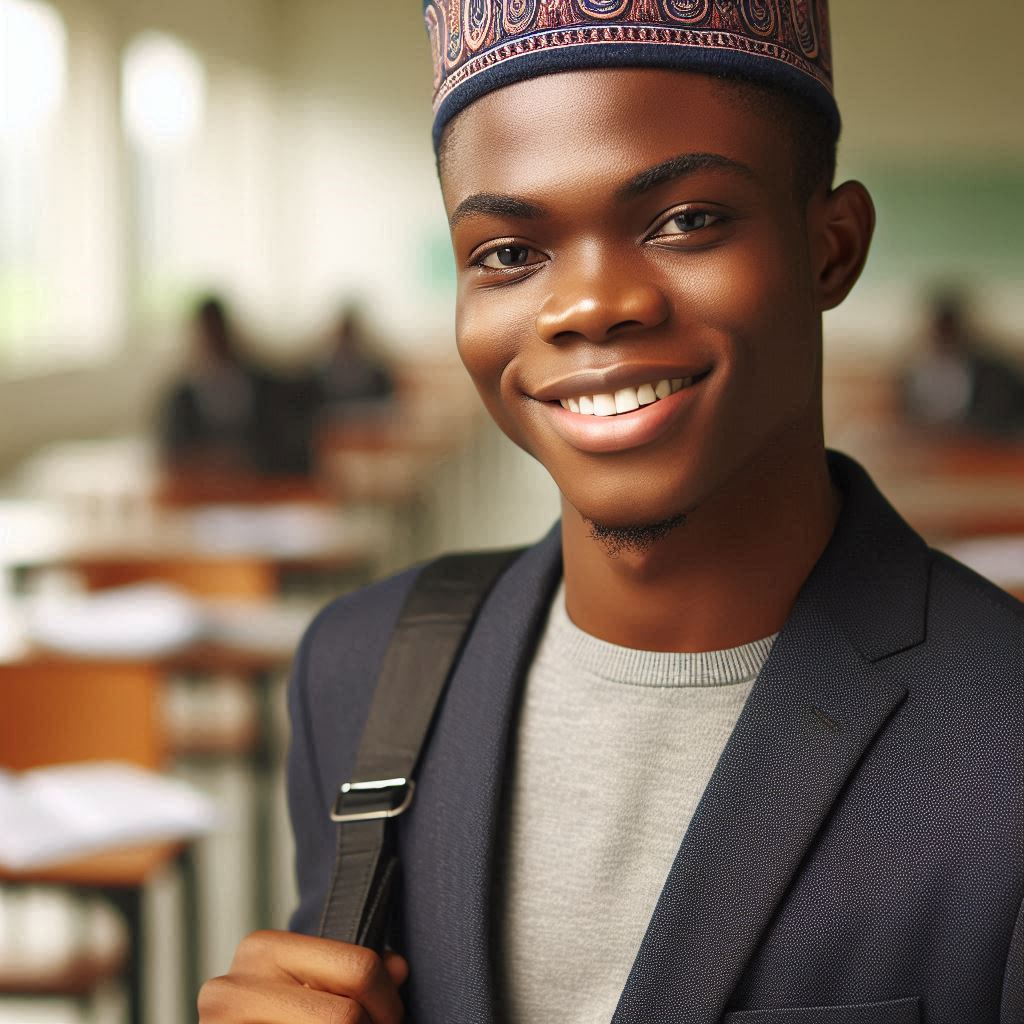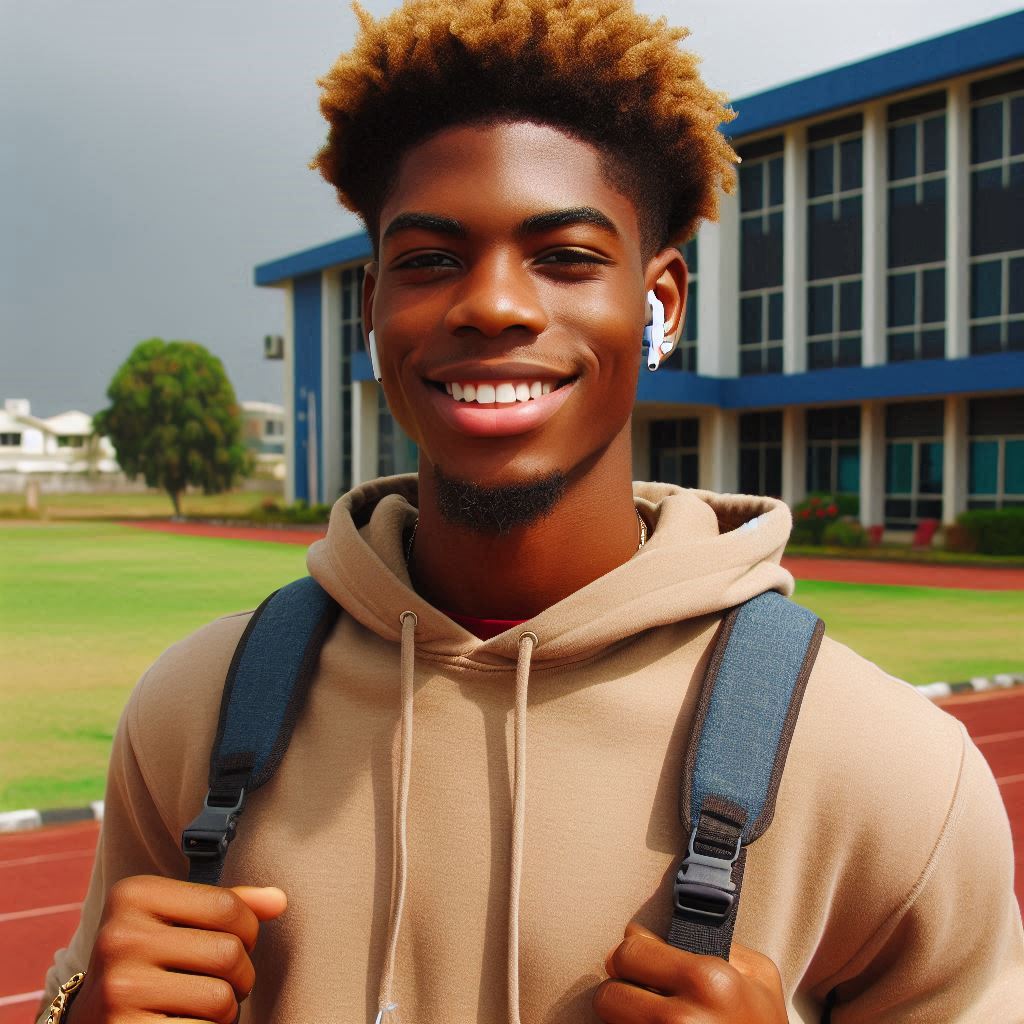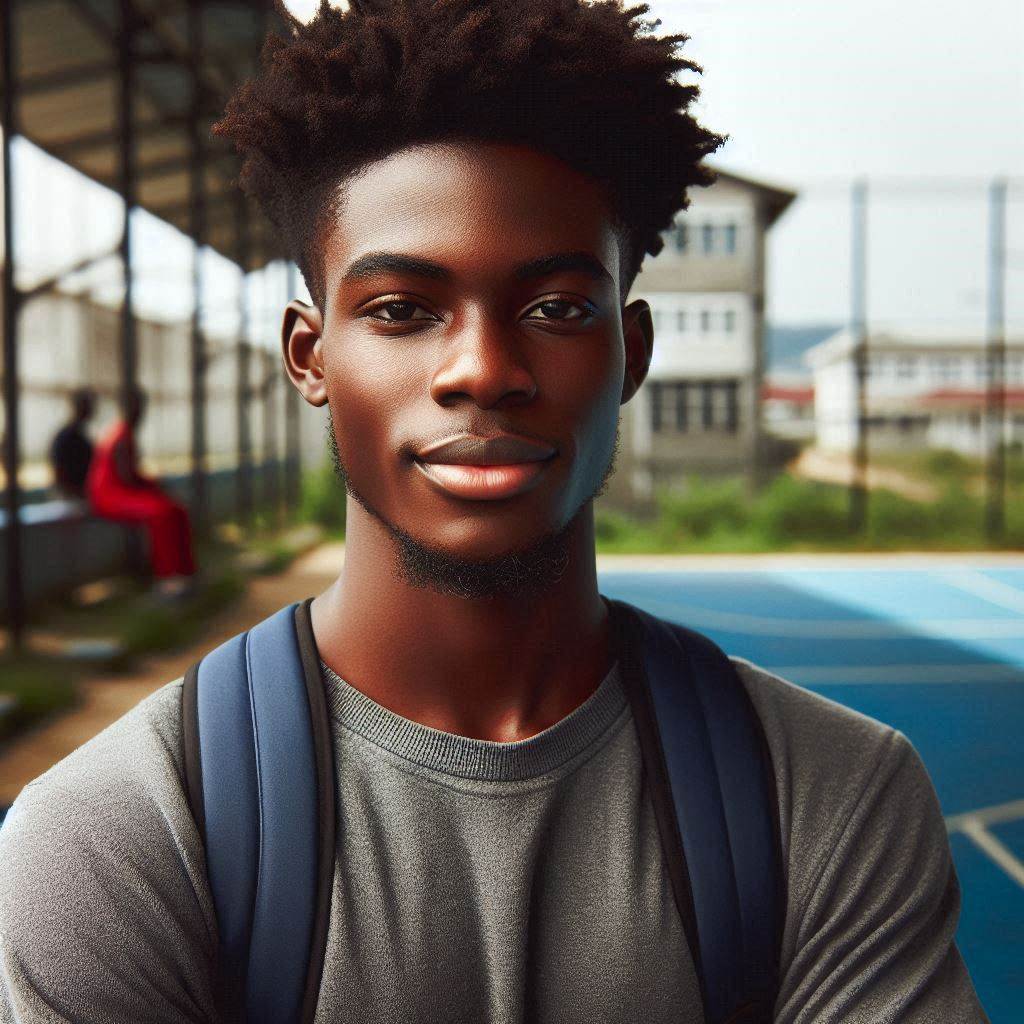Introduction
Sport science education in Nigeria is an evolving field that merges the science of human movement with the art of athletic training and performance.
This interdisciplinary domain encompasses various aspects, including biomechanics, physiology, psychology, and nutrition, all aimed at optimizing athletic performance and enhancing overall health.
In a country where sports play a pivotal role in the cultural fabric and youth development, the advancement of sport science education is paramount.
The importance of sport science education in Nigeria cannot be overstated.
Firstly, it plays a critical role in developing athletes by providing them with the scientific knowledge and practical skills needed to excel in their respective sports.
Through specialized training programs and research, sport scientists can help athletes understand their bodies better, improve their techniques, and recover from injuries more effectively.
This scientific approach to training ensures that athletes can reach their full potential and compete at higher levels, both nationally and internationally.
Moreover, sport science education promotes healthy lifestyles among the general population.
In fact, sport science education is a vital component in the development of athletes, the promotion of healthy lifestyles, and the socio-economic advancement of Nigeria.
As the nation continues to recognize and invest in this crucial field, the benefits will resonate across various sectors, ultimately contributing to a healthier and more prosperous society.
Lack of Funding
The landscape of sport science education in Nigeria is fraught with challenges, among which inadequate funding stands out as a critical impediment to progress.
The ramifications of insufficient financial support are multifaceted, affecting both the quality and accessibility of sport science education in profound ways.
How inadequate funding affects the quality of sport science education
Firstly, inadequate funding severely compromises the quality of educational infrastructure.
Many institutions offering sport science programs operate with outdated or insufficient equipment, which hampers practical learning and research.
Laboratories and training facilities are often under-equipped, preventing students from gaining hands-on experience with modern technology and methodologies.
This gap between theoretical knowledge and practical application undermines the development of competent sport science professionals who can meet international standards.
Furthermore, the shortage of funds restricts the hiring and retention of qualified faculty.
Competitive salaries and professional development opportunities are crucial for attracting and maintaining high-caliber educators.
Without adequate financial resources, institutions struggle to offer these incentives, leading to a brain drain where talented educators either leave for better opportunities abroad or switch to more lucrative fields.
This depletion of expertise negatively impacts the quality of instruction and mentorship available to students.
Moreover, research, which is a cornerstone of sport science, suffers significantly from funding deficits.
Innovative studies and projects require substantial investment, but limited budgets force researchers to cut corners or abandon ambitious initiatives altogether.
This stifles the generation of new knowledge and the advancement of sport science as a discipline in Nigeria.
The need for increased government support and investment in sports education programs
To address these issues, increased government support and investment are imperative.
The government must recognize sport science education as a vital component of national development and allocate sufficient resources to enhance its quality.
This includes funding for modern facilities, competitive salaries for educators, and grants for research projects. Additionally, public-private partnerships could be explored to supplement government efforts, fostering a collaborative approach to resource mobilization.
In short, the lack of funding is a significant barrier to the advancement of sport science education in Nigeria.
Addressing this challenge through increased governmental and private sector investment is essential to cultivate a robust and competitive sport science landscape that can contribute meaningfully to the nation’s growth and global standing.
Read: Role of Secretarial Educators in Nigeria
Inadequate Infrastructure
The shortage of sports facilities, laboratories, and equipment for practical training
Sport science education in Nigeria faces significant challenges, with inadequate infrastructure being one of the most pressing.
The shortage of sports facilities, laboratories, and equipment for practical training undermines the quality of education and hampers students’ ability to gain hands-on experience.
Firstly, many institutions lack sufficient sports facilities.
This includes not only basic amenities like well-maintained sports fields and gyms but also specialized venues for various sports.
Without these, students miss out on critical aspects of their training, particularly in sports management, coaching, and athletic training programs.
Laboratories are another crucial component that is often missing or poorly equipped.
Advanced study areas such as biomechanics, exercise physiology, and sports psychology require specialized equipment and spaces that are rarely available.
The absence of these facilities means that students cannot engage in the practical experiments and research essential for a comprehensive understanding of their field.
Additionally, the shortage of equipment further exacerbates the problem.
Even when basic facilities are available, they are often under-equipped or out-of-date, limiting the scope of practical learning.
This affects students’ proficiency and confidence in using modern sports science tools and techniques, ultimately impacting their readiness for the workforce.
Transform Your Career with Expert Guidance
Get personalized mentorship consulting that’s tailored to your unique path. Our expert advice is actionable and exclusive.
Get StartedPossible solutions for improving infrastructure to enhance the learning experience for students
To address these issues, a multifaceted approach is needed. Firstly, increased funding from both government and private sectors is essential.
Investment in infrastructure development can significantly enhance the learning environment.
Public-private partnerships can also play a crucial role, with private companies providing funding and resources in exchange for branding and collaboration opportunities.
Moreover, institutions should prioritize resource optimization.
Sharing facilities between departments and institutions, when feasible, can maximize the use of available infrastructure.
Additionally, integrating technology such as virtual labs and simulation software can offer alternative methods for practical training where physical resources are limited.
Finally, fostering international collaborations with universities that have advanced sports science programs can facilitate the exchange of knowledge and resources.
Such partnerships can help Nigerian institutions upgrade their infrastructure and adopt best practices in sports science education.
Improving infrastructure is vital for the development of sport science education in Nigeria.
By addressing these challenges, we can create a more robust and effective learning environment that prepares students to excel in the dynamic field of sports science.
Read: Secretarial Education and Workplace Efficiency
Limited Access to Information
The lack of access to up-to-date research and resources within the field of sport science
One of the critical challenges confronting sport science education in Nigeria is the limited access to up-to-date research and resources.
In a rapidly evolving field like sport science, staying current with the latest developments, methodologies, and technologies is essential.
However, many Nigerian institutions face significant barriers in this regard.
First, there is a notable scarcity of contemporary academic journals and textbooks in the libraries of many Nigerian universities.
This shortage means that students and educators often rely on outdated materials, which hampers their ability to engage with the latest research findings and theoretical advancements.
The digital divide exacerbates this problem, as many educational institutions lack adequate internet infrastructure, limiting access to online databases and e-journals that are critical for current research.
To address these challenges, fostering partnerships with international institutions is a promising strategy.
Collaborative efforts can facilitate the exchange of resources, expertise, and knowledge.
For instance, Nigerian universities could establish formal agreements with universities in countries where sport science research is more advanced.
These partnerships can include provisions for shared access to digital libraries, joint research projects, and exchange programs for students and faculty.
Ways to improve access to information through partnerships with international institutions or online resources
Another viable solution lies in leveraging online resources.
Massive Open Online Courses (MOOCs) offered by reputed global universities can provide Nigerian students and educators with access to high-quality educational content for free or at a minimal cost.
Platforms like Coursera, edX, and Khan Academy offer courses in various aspects of sport science, allowing learners to stay updated with global trends and best practices.
Moreover, developing a national digital repository for sport science research, funded and maintained by the government or private sector, could ensure that Nigerian students and researchers have access to a centralized database of local and international research.
This initiative would significantly enhance the quality of sport science education and research in the country.
In essence, while limited access to up-to-date information poses a significant challenge to sport science education in Nigeria, strategic partnerships and the utilization of online resources offer viable pathways to bridge this gap and enhance the field’s academic and practical dimensions.
Read: Future of Special Education in Nigeria
Shortage of Qualified Instructors
One of the major challenges facing sport science education in Nigeria is the shortage of qualified instructors.
The scarcity of skilled educators and professionals in the field of sport science has a direct impact on the quality of education provided to students.
Identification of the Scarcity of Skilled Educators
The lack of qualified instructors in sport science education can be attributed to several factors.
One of the main reasons for this shortage is the limited number of universities and institutions offering specialized programs in sport science.
Moreover, the field of sport science is still relatively new in Nigeria, and there is a lack of awareness and understanding about the importance of this discipline.
As a result, there are few individuals who choose to pursue a career in sport science education.
Strategies for Training and Retaining Qualified Instructors
In order to address the shortage of qualified instructors in sport science education, it is essential to implement strategies for training and retaining skilled professionals in the field.
- Investment in Professional Development: Universities and institutions offering sport science programs should prioritize the professional development of their instructors. This can be achieved through workshops, seminars, and training programs that focus on enhancing teaching skills and knowledge in sport science.
- Collaboration with Industry Partners: Collaboration with industry partners can provide opportunities for instructors to gain practical experience and knowledge in the field of sport science. This collaboration can also lead to potential employment opportunities for instructors, thereby increasing retention rates.
- Support for Further Education: Universities and institutions should provide support for instructors who wish to pursue further education and specialization in sport science. Offering scholarships, grants, and study leave can encourage instructors to enhance their qualifications and expertise in the field.
- Mentorship Programs: Implementing mentorship programs can help new instructors acclimate to the demands of sport science education. Experienced professionals can provide guidance, advice, and support to help new instructors develop their teaching skills and knowledge.
By implementing these strategies, universities and institutions can improve the quality of sport science education in Nigeria and address the shortage of qualified instructors in the field.
Investing in the professional development of instructors, collaborating with industry partners, supporting further education, and implementing mentorship programs are crucial steps towards enhancing the overall quality of education in sport science.
Read: Scholarship Opportunities for Secretarial Studies

Curriculum Challenges
The relevance and comprehensiveness of the current sport science curriculum in Nigerian universities
Sport science education in Nigeria faces numerous challenges, with the curriculum being a significant point of concern.
The relevance and comprehensiveness of the current sport science curriculum in Nigerian universities are often scrutinized for several reasons.
Firstly, the existing curriculum tends to be outdated, lacking alignment with the latest advancements and global trends in sport science.
Many programs still rely heavily on theoretical knowledge with minimal practical application, failing to equip students with the hands-on experience necessary in today’s dynamic sports industry.
Furthermore, essential areas such as sports psychology, biomechanics, and modern sports technologies are either underrepresented or entirely absent from the curriculum.
This results in graduates who are not fully prepared to meet the demands of the contemporary sports environment, both locally and internationally.
Additionally, there is a notable absence of interdisciplinary integration within the curriculum.
Sport science naturally intersects with fields like nutrition, physiology, and psychology.
However, the current curriculum structure often isolates these disciplines, preventing students from gaining a holistic understanding of how these areas interplay to enhance athletic performance and overall health.
Potential updates or revisions to ensure students receive a well-rounded education in the field
To address these issues, potential updates and revisions to the curriculum are imperative.
Firstly, incorporating more practical and experiential learning opportunities is crucial.
This could involve partnerships with sports organizations, internships, and the use of advanced sports technology labs.
Such hands-on experiences would bridge the gap between theory and practice, better preparing students for real-world challenges.
Moreover, updating course content to include emerging trends and technologies in sport science is essential.
This includes modules on sports analytics, wearable technology, and injury prevention. Introducing a multidisciplinary approach that combines elements of psychology, nutrition, and physiology will also provide students with a more comprehensive education.
Finally, continuous curriculum review and stakeholder engagement are vital. Involving industry professionals in curriculum development ensures that the education provided is relevant and meets the current demands of the sport science industry.
Through these updates, Nigerian universities can cultivate a robust sport science program that equips students with the knowledge and skills required to excel in the ever-evolving sports landscape.
Limited Research Opportunities in Sport Science Education in Nigeria
Sport science education in Nigeria grapples with significant challenges, chief among them being the limited research opportunities available to students and faculty.
This scarcity of research funding and support hampers the growth and development of the field, stifling innovation and progress.
Lack of Research Funding
One of the primary issues is the chronic underfunding of research initiatives.
Universities and colleges offering sport science programs often face budget constraints, allocating insufficient funds for research projects.
This financial shortfall restricts students and faculty from pursuing comprehensive studies, purchasing necessary equipment, or attending international conferences where they could present their findings and gain valuable feedback.
Insufficient Research Opportunities
Alongside funding issues, there is a glaring deficiency in structured research opportunities.
Many sport science programs lack dedicated research facilities or laboratories, making it difficult for students to engage in practical, hands-on research.
Furthermore, the absence of collaboration with international research institutions limits the exposure of Nigerian sport science students to global best practices and innovations.
Encouraging and Supporting Research Initiatives
To address these challenges, several strategies can be employed to encourage and support research within sport science education:
- Increased Government and Private Sector Investment: Advocacy for increased government funding and attracting private sector sponsorships can provide much-needed financial support. Scholarships, grants, and research endowments could significantly boost research activities.
- Establishment of Research Centers: Universities should prioritize the establishment of dedicated sport science research centers equipped with modern facilities. These centers can serve as hubs for innovative research and development.
- International Collaborations: Forming partnerships with international sport science institutions can facilitate knowledge exchange and provide students and faculty with opportunities to participate in global research projects.
- Encouraging Interdisciplinary Research: Promoting interdisciplinary research involving sport science, medicine, psychology, and other relevant fields can lead to comprehensive studies and innovative solutions.
By addressing these issues and fostering a supportive environment for research, Nigeria can enhance the quality and impact of its sport science education, ultimately contributing to the advancement of the field both locally and globally.
Cultural Attitudes Towards Sports Education
Cultural Stereotypes in Nigeria
In Nigeria, there exist cultural stereotypes and perceptions that devalue the importance of sport science education.
These stereotypes often categorize sports as a less prestigious career path compared to traditional professions like medicine, law, or engineering.
This mindset can hinder the growth and development of sports education in the country.
Impact of Cultural Attitudes on Sports Education
These cultural attitudes contribute to a lack of support and investment in sports education programs.
As a result, resources for training facilities, research, and professional development in sport science remain limited.
This perpetuates a cycle where aspiring sports students face significant challenges in pursuing their passion and career goals.
Advocating for Change
To address these issues, there is a need to advocate for a shift in mindset within Nigerian society.
Promoting the value of sports education and highlighting its importance in holistic development can help challenge existing stereotypes.
By emphasizing the benefits of sports education in promoting physical health, mental well-being, teamwork, and leadership skills, we can change the narrative around sports in Nigeria.
Changing Perceptions
Changing cultural attitudes towards sports education requires a multi-faceted approach.
This includes raising awareness about the diverse career opportunities available in the sports industry, showcasing success stories of Nigerian athletes and professionals in the field, and collaborating with educational institutions and government bodies to integrate sports education into the curriculum at all levels.
By actively promoting sports as a viable and valuable educational path, we can inspire future generations to pursue their passion for sports science.
Basically, addressing cultural attitudes towards sports education in Nigeria is essential for the growth and development of the field.
By challenging stereotypes, advocating for a mindset shift, and promoting the value of sports education, we can create a more supportive environment for aspiring sports students and professionals.
It is time to recognize the importance of sports in education and work towards a future where sports science is valued and prioritized in Nigerian society.
Conclusion
Sport science education in Nigeria encounters several significant challenges that hinder its growth and effectiveness.
The key issues include inadequate funding, insufficient infrastructure, and a shortage of qualified personnel.
Many institutions lack the financial resources needed to procure modern equipment, maintain facilities, or support research initiatives.
Consequently, students often have limited access to practical training, which is crucial for their development and future careers.
Another critical challenge is the insufficient infrastructure.
Many universities and colleges offering sport science programs are equipped with outdated or inadequate facilities, limiting the scope of practical experience and experimentation.
This shortfall hampers the ability of students to engage in hands-on learning, a vital component of sport science education.
Furthermore, there is a significant shortage of qualified educators in the field.
The limited availability of specialized training programs for sport science educators means that many teaching professionals lack the necessary expertise and up-to-date knowledge to effectively instruct students.
This gap in expertise can lead to a curriculum that does not align with global standards or the latest advancements in the field.
To address these challenges, collaborative efforts from all stakeholders are essential.
The government must prioritize and increase funding for sport science education to ensure institutions can provide high-quality learning environments.
Educational institutions need to invest in modernizing their facilities and equipment, creating partnerships with international bodies to adopt best practices and technological advancements.




